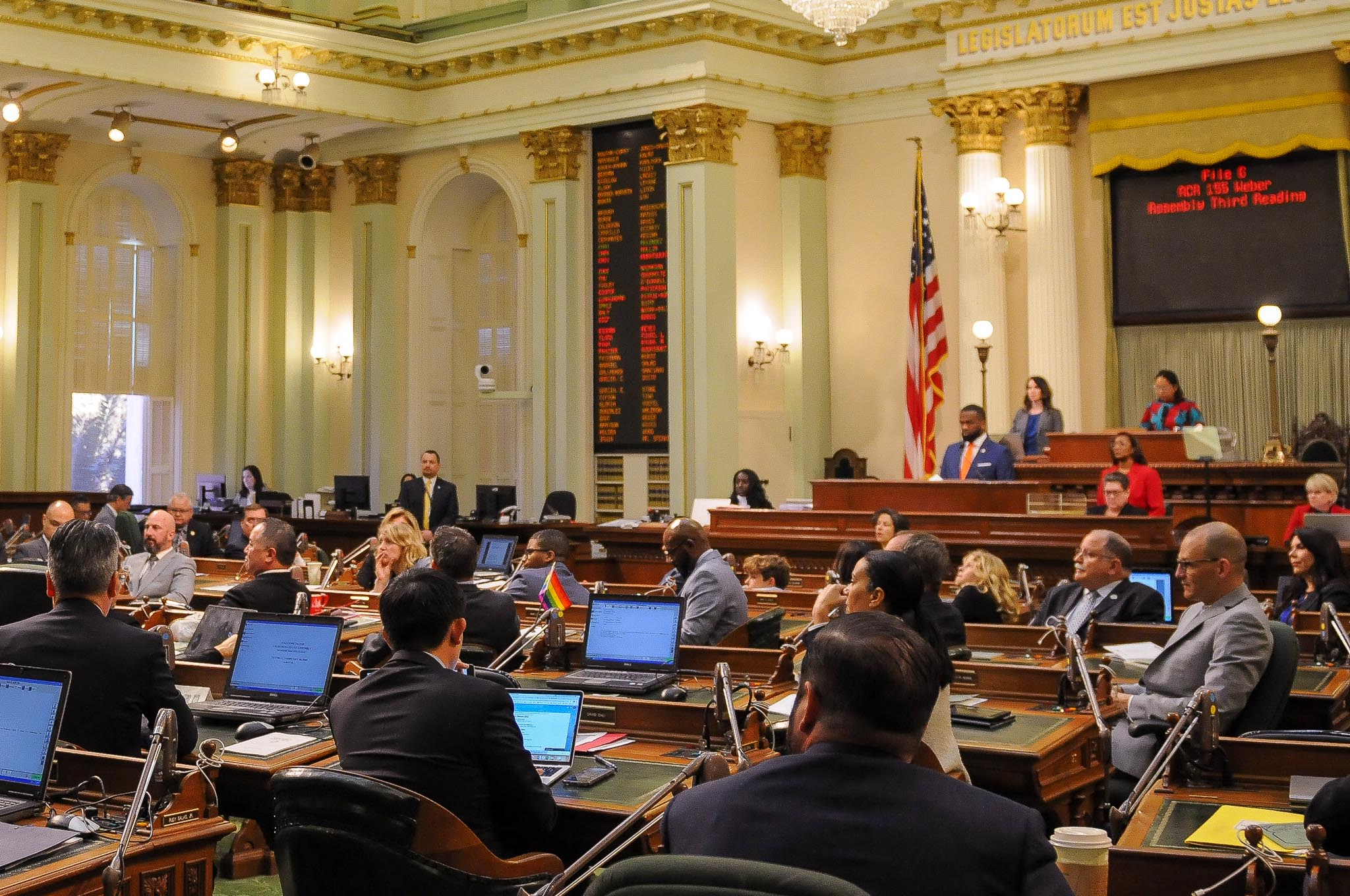
California State Capitol. (Photo: Kevin Sanders for California Globe)
Definitions and Interpretation Principles in the Commercial Code
A person gives value for rights if the person acquires them in one of four specified circumstances
By Chris Micheli, February 1, 2025 2:32 am
California’s Commercial Code, in Division 1, Chapter 2, provides a series of general definitions and principles of interpretation.
Section 1201 defines the following terms: “action,” “aggrieved party,” “agreement,” “bank,” “bearer,” “bill of lading,” “branch,” “burden of establishing,” “buyer in ordinary course of business,” “conspicuous,” “contract,” “creditor,” “defendant,” “delivery,” “document of title,” “fault,” “fungible goods,” “genuine,” “good faith,” “holder,” “insolvency proceeding,” “insolvent,” “money,” “organization,” “party,” “person,” “present value,” “purchase,” “purchaser,” “record,” “remedy,” “representative,” “right,” “security interest,” “send,” “sign,” “signed,” “signing,” “signature,” “spouse,” “state,” “surety,” “term,” “unauthorized signature,” “warehouse receipt,” “writing,” and “electronic.”
Section 1202 defines the term “notice” and when a person has notice of a fact. It also defines the terms: “knowledge,” “knows,” “discover,” “learn,” “notified,” “gives,” and “receives.”
Section 1203 specifies that, whether a transaction in the form of a lease creates a lease or security interest is determined by the facts of each case. A transaction in the form of a lease creates a security interest if the consideration that the lessee is to pay the lessor for the right to possession and use of the goods is an obligation for the term of the lease and is not subject to termination by the lessee, and one or four other requirements is met.
A transaction in the form of a lease does not create a security interest merely because seven specified provisions are met. Additional consideration is nominal if it is less than the lessee’s reasonably predictable cost of performing under the lease agreement if the option is not exercised. Additional consideration is not nominal, however, if either of two specified provisions are included.
Section 1204 states that a person gives value for rights if the person acquires them in one of four specified circumstances.
Section 1205 states that, whether a time for taking an action required by this code is reasonable depends on the nature, purpose, and circumstances of the action. An action is taken “seasonably” if it is taken at or within the time agreed or, if no time is agreed, at or within a reasonable time.
Section 1206 specifies that, whenever this code creates a “presumption” with respect to a fact, or provides that a fact is “presumed,” the trier of fact must find the existence of the fact unless and until evidence is introduced that supports a finding of its nonexistence.
- Deposition of Expert Witnesses - February 20, 2026
- Response to Interrogatories - February 20, 2026
- Insignia of Nonprofit Associations - February 19, 2026





One thought on “Definitions and Interpretation Principles in the Commercial Code”